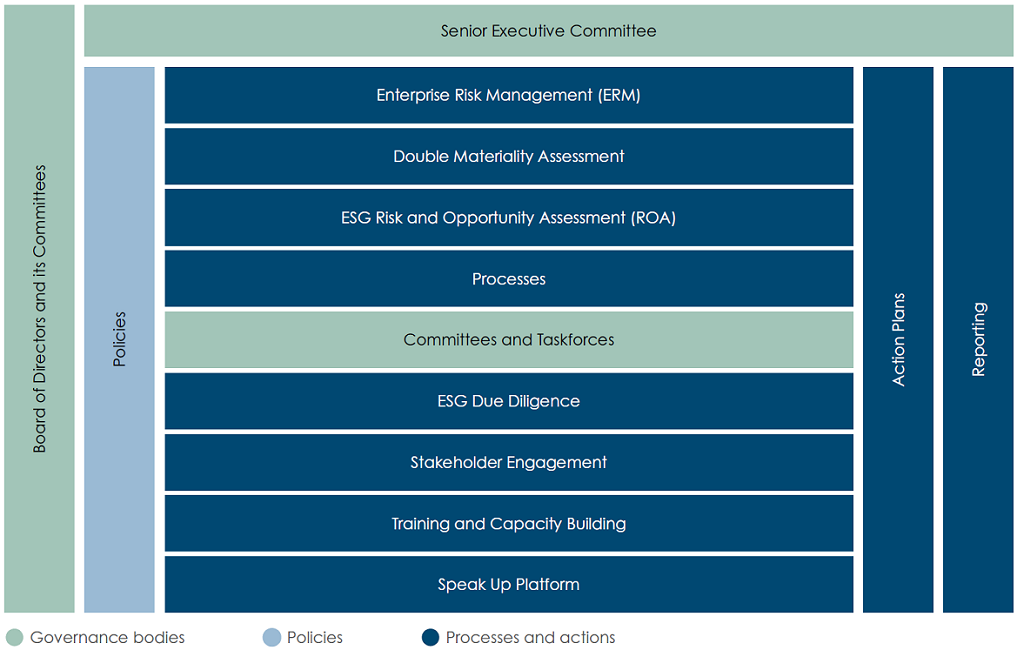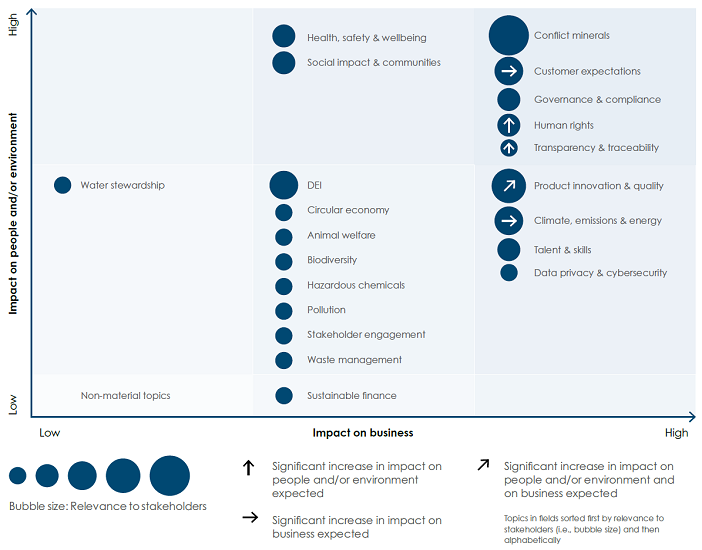ESG management
Policies
The Group’s Standards of Business Conduct approved by the Governance and Sustainability Committee of the Board act as a foundation for the Group’s culture and guides legal, ethical and sustainable decisions. The Standards are reviewed every three years to ensure they evolve with global, ethical and legal standards.
The Supplier Code of Conduct (SCoC), Environmental Code of Conduct and Data Privacy Policy, amongst others, are well-established policies that support the ESG Management System. The Richemont Human Rights Statement, reflects the Group’s longstanding fundamental principles of respecting the human rights of all people across the business and value chain, including employees, customers, investors, partners and suppliers.
Training & capacity building
Building internal capacity and knowledge is essential to embedding sustainability in the Richemont culture. The Richemont Sustainability Online Academy is a Group-wide training programme that coordinates capacity development activities under one umbrella.
The goal of the Academy is to equip everyone within the Group with the right tools and opportunities to grow their ESG technical understanding. From beginners to sustainability practitioners, the Academy aims to raise awareness, build competencies and deliver expertise.
Reporting
Richemont’s Non-Financial Report 2024 has been prepared in accordance with the Global Reporting Initiative (GRI) Standards (2021). The report covers material environmental, social and governance impacts, as well as the Richemont management approach.
The reporting requirements of the Swiss Code of Obligations (Art. 964 a-c and Art. 964l) have been addressed in this Report. In addition, the international standards and principles of the UN Sustainable Development Goals (SDGs) and the ten principles of the UN Global Compact, remain Richemont’s compass guiding its approach.


